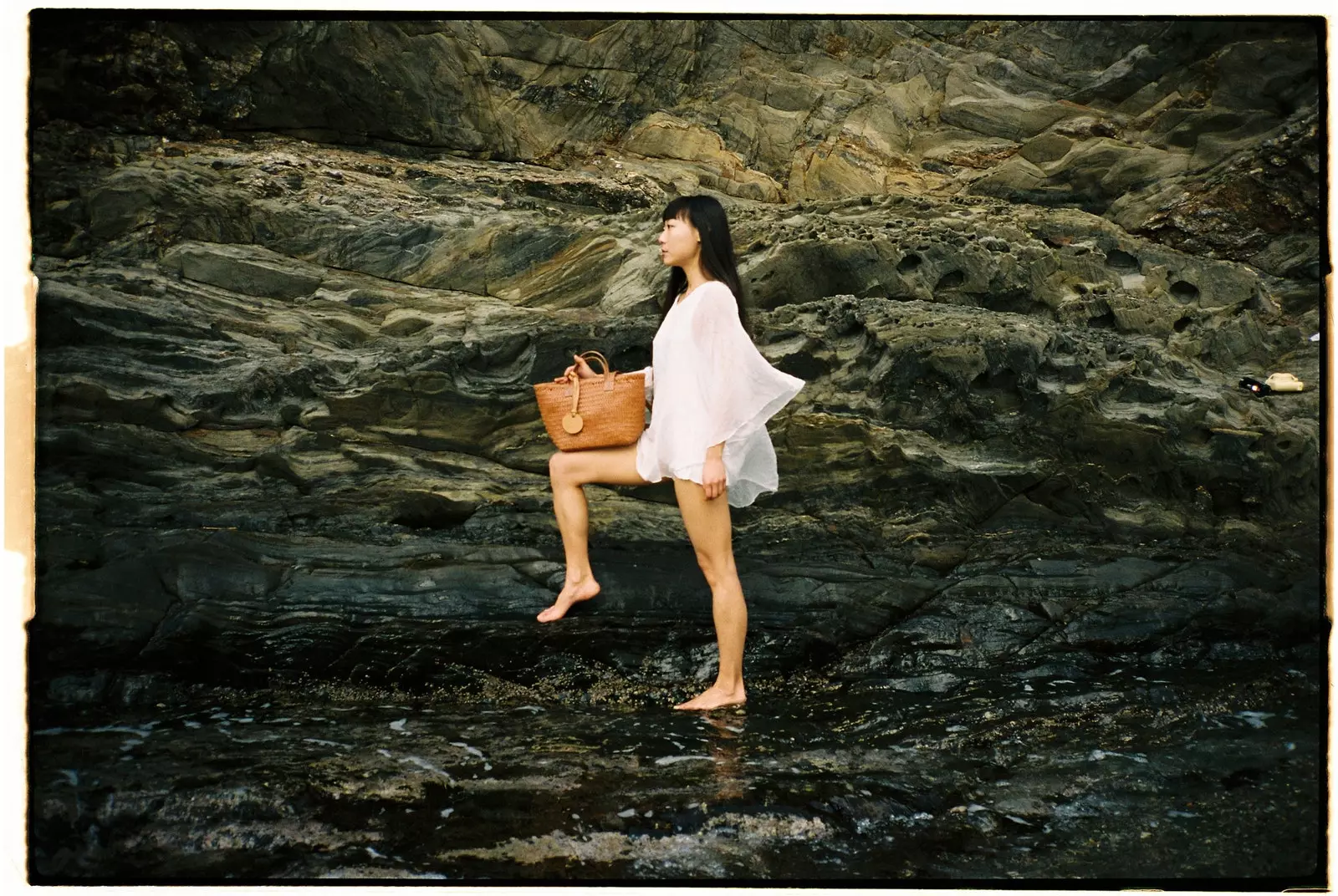
Slow fashion and ethical design is part of Caribú's DNA
According to the UN, the fashion industry is the second most polluting in the world. In terms of waste, of the total fiber used for manufacturing, 87% is incinerated or disposed of in a landfill.
Facing fast fashion, the universe of luxury stands out for two main reasons and closely related: the majority use of natural materials and the high quality of the pieces. What ensures the quality of these materials is the health of the natural resources that produce them.
However, even the luxury industry produces a surplus. And that's where it comes in Caribou Studio , which makes its bags using carefully selected leather from surplus luxury brands, worked by local artisans.
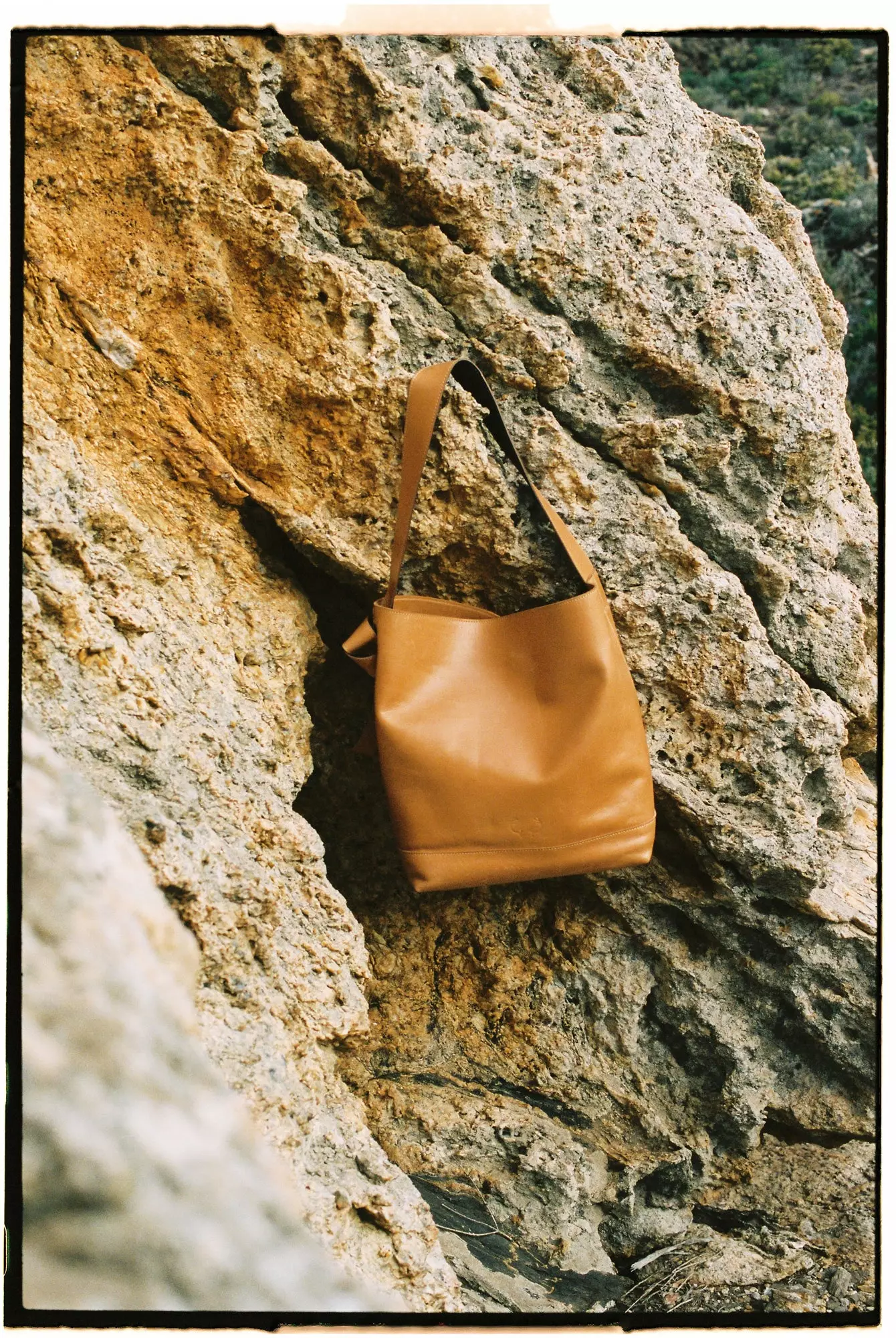
Spanish cowhide leather shopper with suede interior
CARIBU: SLOW, ETHICAL AND UNIQUE
Caribú was born with Mariona's dream of creating her own line of bags. After graduating and working for several Spanish luxury brands for years, this designer from Barcelona decided to start her own adventure to bring her vision to the market.
“We believe in things well done, worked on and treated with care. We work to create unique and exclusive pieces that last a lifetime”, Mariona tells Traveler.es
Slow fashion and ethical design are part of the firm's DNA: “We distance ourselves from the demands of the mass market and trends in general, since at Caribú we only do what reflects our personality,” she continues.
Caribú Studio produces handmade bags with skins from local suppliers, together with which, They look for the best surpluses that the luxury brand market does not take advantage of due to excess stock.
The result? Current and quality designs for a public aware of the environment and local industry.
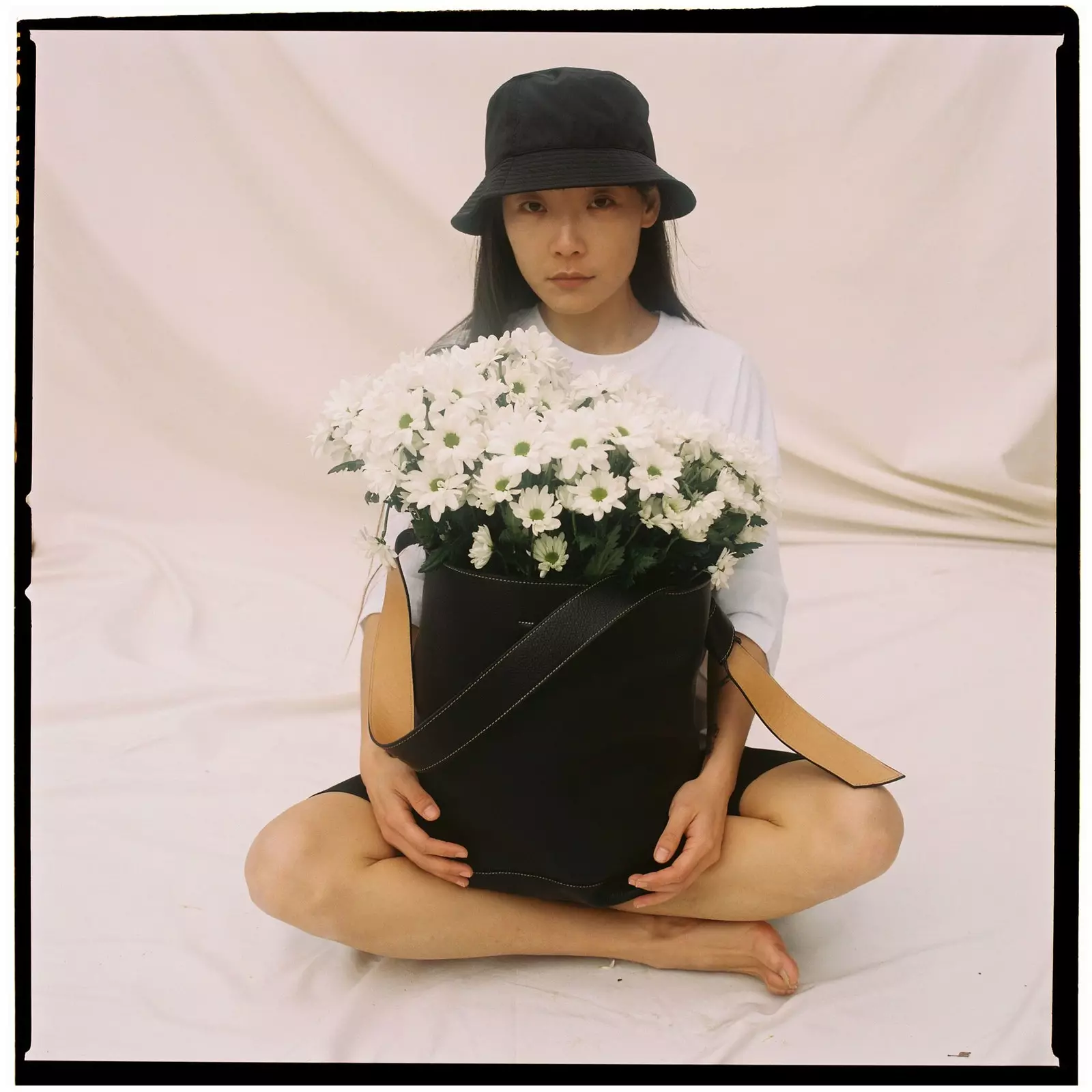
The Camelia model: a timeless jewel
THE ENVIRONMENTAL COST OF “GOING FASHIONABLE”
According to data from the United Nations Conference on Trade and Development (UNCTAD or UNCTAD with its acronym in English), each year, the fashion industry uses 93 billion cubic meters of water, enough to meet the consumption needs of five million people.
In addition, each year half a million tons of plastic microfibers are dumped into the ocean, which is equivalent to more than 50,000 million plastic bottles –or 3 million barrels of oil–.
The fashion industry is also responsible for 10% of annual global carbon emissions, “more than all international flights and maritime transport combined”, according to UNCTAD (2019).
The Ellen MacArthur Foundation , based in the UK, in his studio A new textiles economy: Redesigning fashion's future (A New Textile Economy: Redesigning the Future of Fashion), reveals that 87% of the material used for clothing production is landfilled or incinerated after its end use, which represents a lost opportunity of more than 100 billion dollars per year, along with negative environmental impacts.
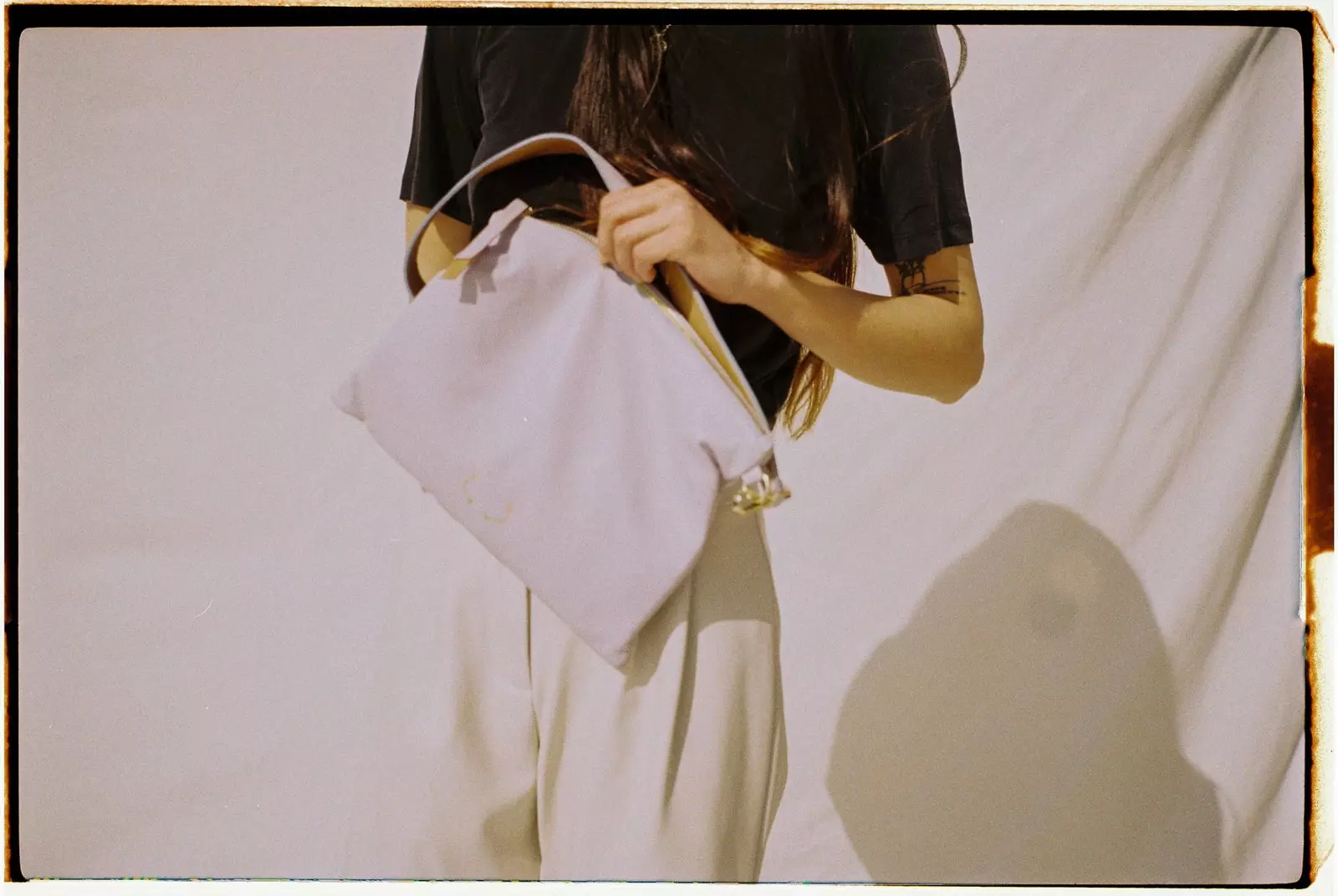
Caribou: bags made from surplus luxury brands
Up to 73% of the material that enters the clothing system is lost after the final use of the garment, 10% is lost during garment production (eg as offcuts) and 2% is sent to landfill or incinerated from the garments that are produced, but never reach the market.
Just some data, this time, from the study Pulse of the Fashion Industry, conducted by Global Fashion Agenda in 2019: If demographic and lifestyle patterns continue as they are now, “By 2030, the global apparel and footwear industry is expected to reach a volume of 102 million tons.”
The need to take action and take responsibility – both by industry and consumers – is urgent and comes hand in hand with the “5R's” of sustainability (Coined by Bea Johnson in her book Zero Waste Home: The Ultimate Guide to Simplifying Your Life by Reducing Your Waste: Refuse, Reduce, Reuse, Recycle, and Rot.
Namely, decline (what we don't need), reduce (what we need), re-use (what we no longer consume), Recycle (what we cannot reject, reduce or reuse) and reincorporate (composting the rest).
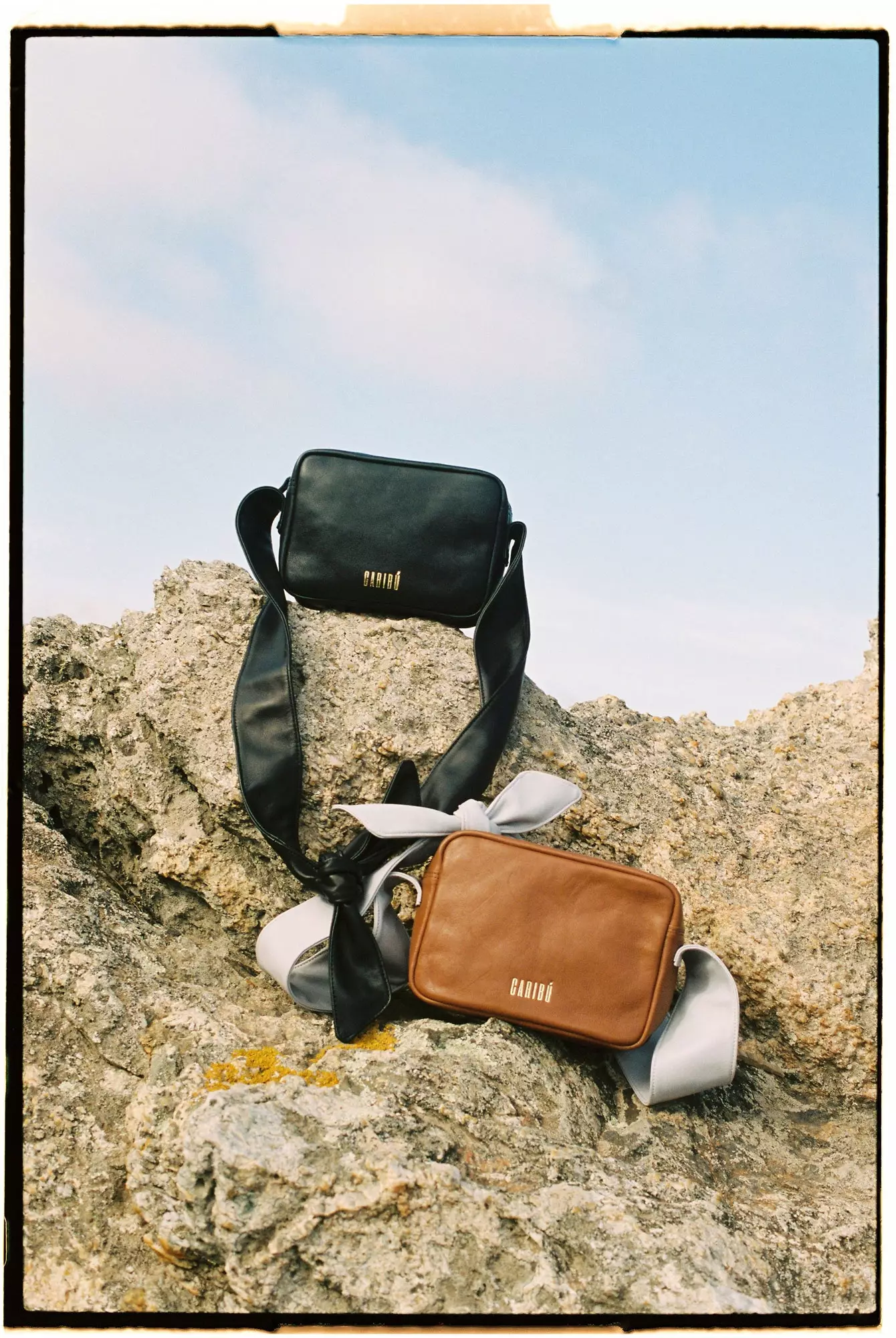
The fashion industry is one of the most polluting in the world
CARIBOU AND SUSTAINABILITY
Sustainability plays a fundamental role in Caribú Studio and is present in each and every one of the processes carried out to make their bags.
“All our production takes place in Spain. That implies two things at the level of sustainability: fair wages and very little pollution from transport. That is perhaps the most polluting factor and the one that is least taken into account. No matter how much you buy a product manufactured in a sustainable way, if you have to bring it from Asia by plane or by ship, the pollution is brutal”, Mariona tells Traveler.es
“On the other hand, it is true that we use animal skins, but all from the meat industry and, above all, using surpluses, that is, we give a useful life to something that others discard, thus achieving an ethical sense by taking advantage of it, ”she continues.
Finally, “they are 100% handmade, and all the packaging is based on recycled materials (recycled paper) and 100% cotton bags,” she adds.
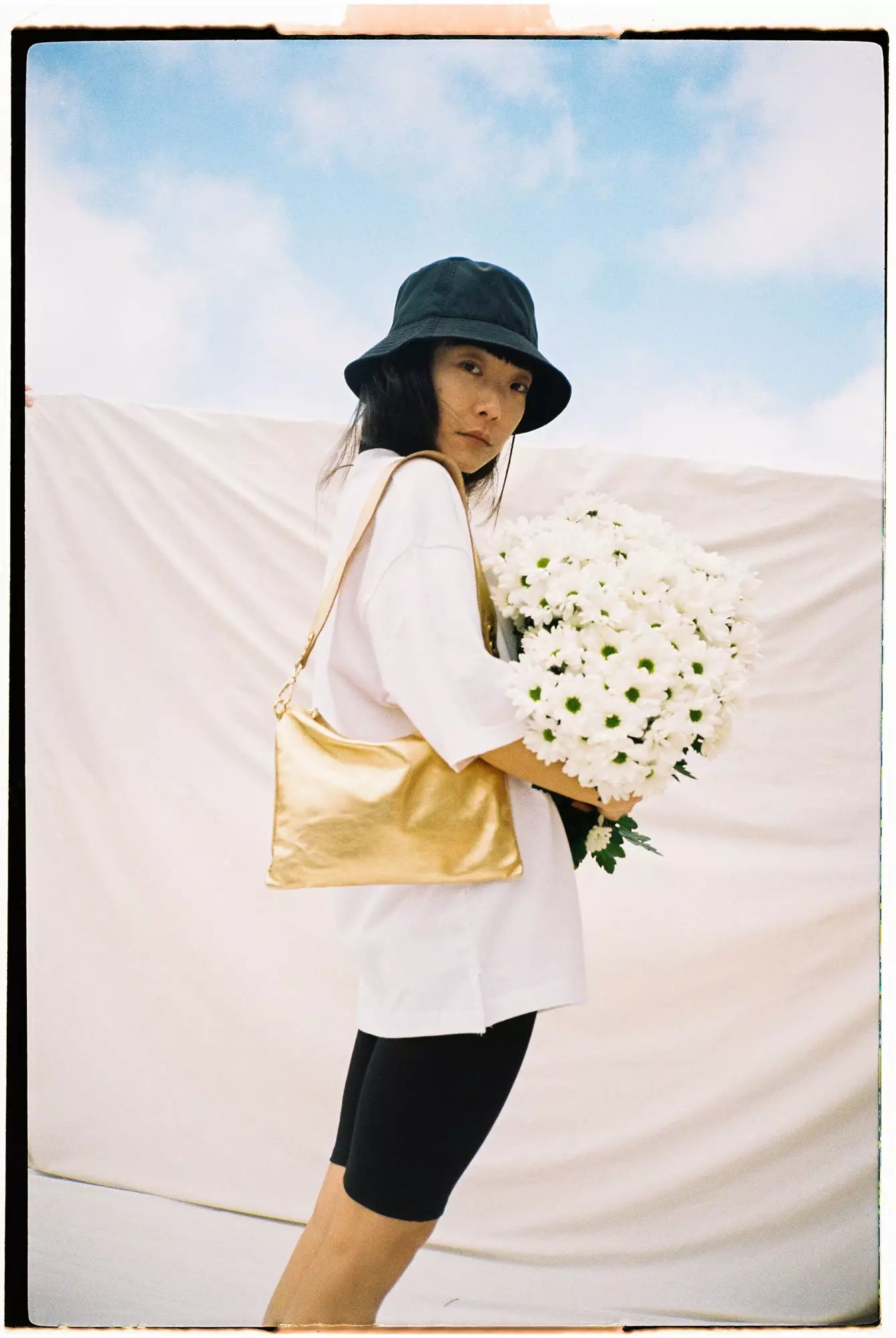
Aurora Gold model: elegance for day and night
ETHICAL LEATHER BAGS
Where do you get your raw material and what selection process do you follow? The founder of the firm explains it to us: “Before starting the collection I make a visit to the supplier where I buy the skins. There I am inspired by the colors and qualities that I would like to use in the next collection and as a result of that first selection of leathers I begin to design the new models”, says Mariona.
“The fact of using surplus leather conditions a lot when designing, but, I think that gives added value to the product we make and enriches it”, she says.
Most of them are lamb and bovine skins from Spain: "In this way we try to support the Spanish textile industry in all its senses and try to bring this industry back home" Marion sentence.
In short, Caribú's raw material is the skin that other brands do not use, not because of the quality (always maximum) but because of the excess stock. “We give them an 'extra life', a meaning, a reason for being. That is why we call it ethical skin”, explains the designer.
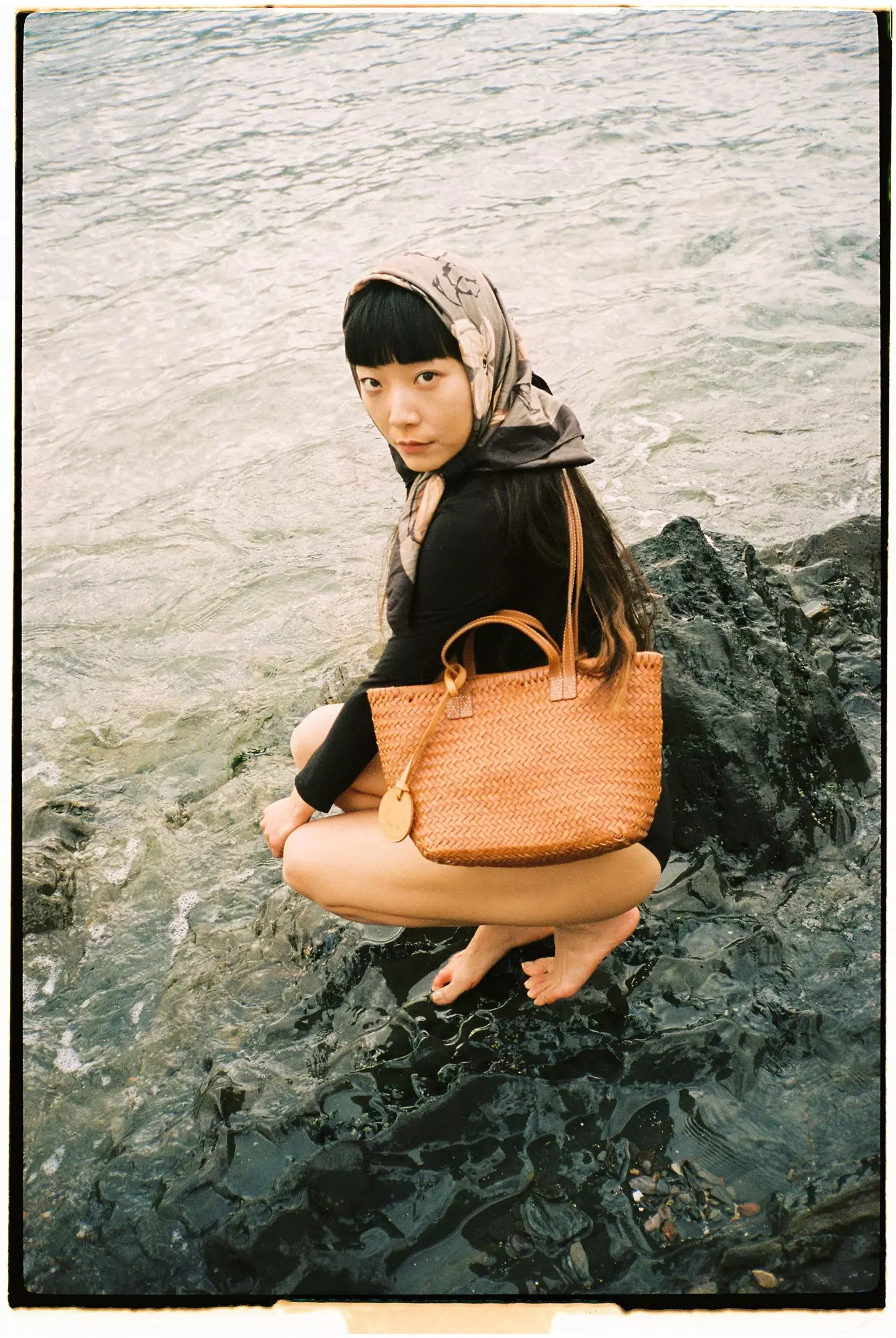
The Malaia model is pure Mediterranean
FROM SURPLUS TO EXCLUSIVE PURSE
The surpluses of other firms whose destination was none other than the landfill, find a new life thanks to Caribú, becoming unique bags.
This exclusivity has a simple reason: by using surplus, the stock is limited and therefore, also the number of available units of each bag.
The talent of local artisans is reflected in every finish and detail. “Our cost of production reflects the highest level of working conditions and business awareness” , they explain from Caribú, because producing in Spain guarantees them that the product is not the victim of any unfair trade, extreme working conditions or exploitation of any kind.
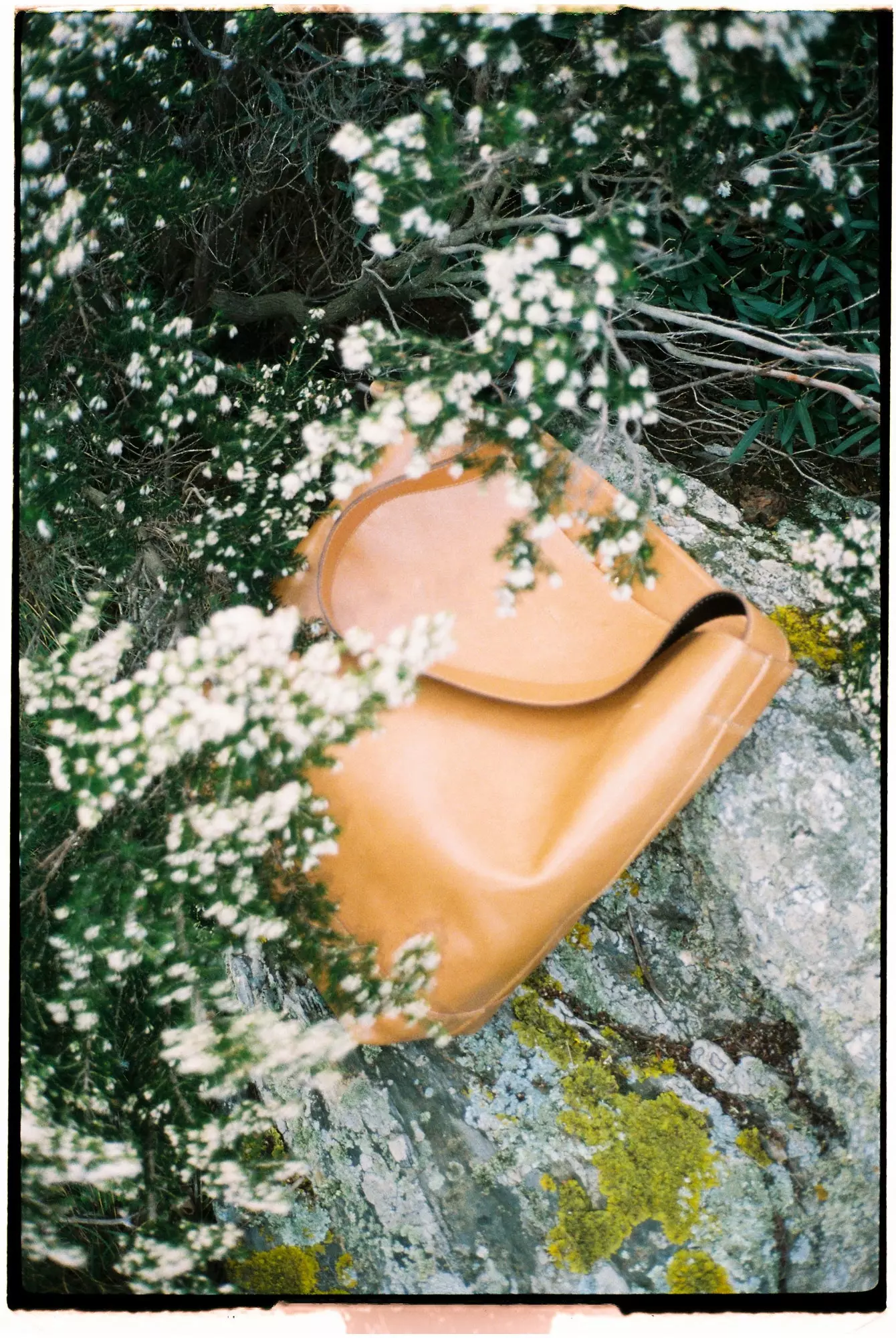
Ethical fashion is possible (and necessary)
The most demanded bags are the Camelia models in camel color and AURORA in black and red but if you had to choose a favorite, Mariona is clear: "The iris. I think it is a basic, simple, comfortable bag that can be adapted to any occasion”.
Regarding seasons and collections, at Caribú they always try to add new models twice a year, but, "Being a timeless product that is far from fast fashion, we try to ensure that every time we bring out a new product it is of quality," says the designer.
"We value more the fact of producing quality products and not so much of providing new models each season," says Mariona, whose signature has already become an object of desire for the most environmentally conscious fashionistas and lovers of craftsmanship and luxury.
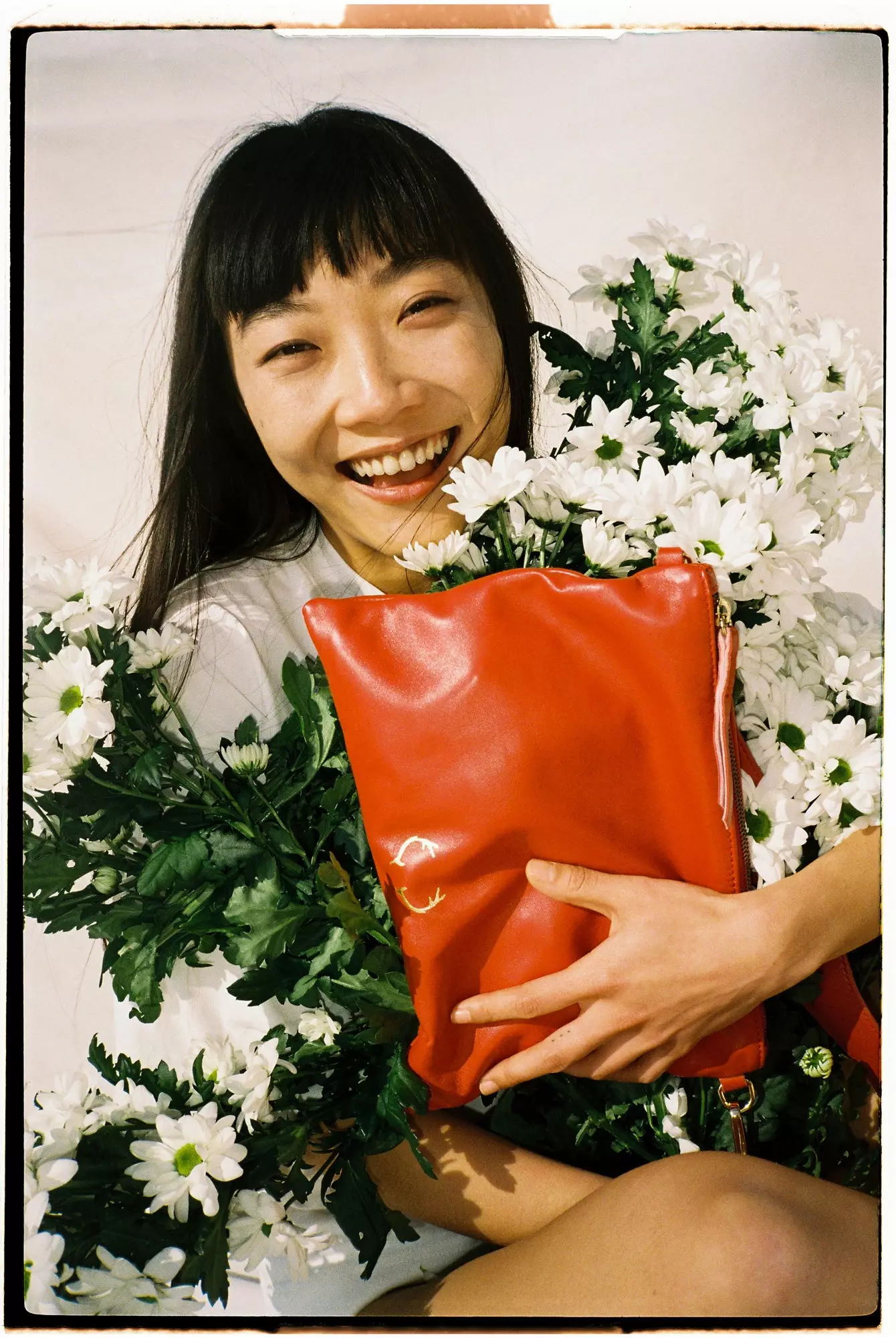
"We work to create unique and exclusive pieces that last a lifetime"
